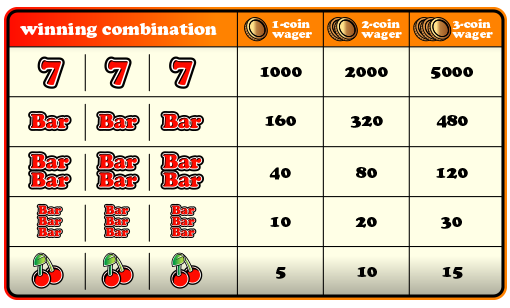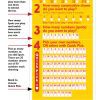Looking to unravel the mystery of how slot machines pay out? Well, you’ve come to the right place! Slot machines are fascinating games that capture the excitement of casinos and offer players the chance to win big. But have you ever wondered how these machines actually determine their payouts? In this article, we’ll explore the inner workings of slot machines and uncover the secrets behind their payout mechanisms. So, buckle up and get ready for an adventure into the world of slot machine payouts!
When you walk into a casino and spot rows of colorful and flashy slot machines, you may wonder how they manage to pay out winnings. The answer lies in the complex algorithms and random number generators (RNGs) that power these machines. Slot machines use sophisticated software to ensure fairness and unpredictable outcomes for players. In this article, we’ll break down the process and give you a peek behind the curtain of slot machine payouts.
Whether you’re a beginner or an experienced player, understanding how slot machines pay out is essential. From the symbols on the reels to the lines and paytables, every aspect of the game contributes to determining your payout. Curious to learn more? Let’s dive in and uncover the fascinating world of slot machine payouts together!

How Do Slot Machines Pay Out?
Slot machines are popular attractions in casinos and can provide hours of entertainment for players. But have you ever wondered how these machines pay out? In this article, we will explore the inner workings of slot machines and delve into the factors that determine how they pay out.
1. Random Number Generators (RNG)
At the heart of every slot machine is a Random Number Generator (RNG). This sophisticated software algorithm generates a sequence of random numbers that determines the outcome of each spin. The RNG ensures that the results of each spin are truly random and independent of previous spins, making it impossible to predict the outcome.
In order to calculate the outcome of a spin, the RNG uses a complex mathematical equation. It takes into account various factors such as the number of symbols on each reel, the number of possible winning combinations, and the odds of hitting each combination. This ensures that each spin is fair and unbiased.
Upon pressing the spin button or pulling the lever, the RNG kicks in and selects a random number. This number corresponds to a specific symbol combination on the reels, determining whether you win or lose on that particular spin.
2. Pay Tables and Payout Percentages
Each slot machine has a pay table, which outlines the different winning combinations and their corresponding payouts. Pay tables can vary from machine to machine, so it’s important to familiarize yourself with the specific pay table before playing.
Additionally, slot machines have a payout percentage, also known as the Return to Player (RTP) percentage. This percentage represents the amount of money the machine pays back to players over time. For example, if a machine has a payout percentage of 95%, it means that over the long run, the machine will return 95% of all wagers back to players, while keeping 5% as profit.
It’s important to note that the payout percentage is calculated over a large number of spins and is not indicative of the results of individual sessions. It’s entirely possible to win or lose significant amounts in a single session, regardless of the machine’s payout percentage. However, playing on machines with higher payout percentages can increase your chances of winning over time.
3. Symbol Frequencies and Odds
In addition to the RNG and the pay table, the frequency of symbols on each reel also plays a significant role in determining how slot machines pay out. The number of times a specific symbol appears on a reel is known as its frequency, while the odds of landing a specific symbol combination are calculated based on these frequencies.
For example, let’s say a slot machine has three reels and each reel contains 20 symbols. If the machine has 5 “7” symbols on each reel, the odds of landing three “7” symbols on a single payline would be calculated as 5/20 x 5/20 x 5/20 = 1/800. These odds determine the probability of hitting a winning combination and ultimately influence how the machine pays out.
Understanding the frequencies and odds of symbols on the reels can give players a better understanding of their chances of winning and help them make more informed decisions when playing slot machines.
Additional Information on How Do Slot Machines Pay Out?
4. Types of Slot Machine Payouts
There are different types of slot machine payouts that players should be aware of. The most common types include:
- Fixed Jackpot: A predetermined jackpot amount that does not change regardless of the number of players or the amount of money wagered.
- Progressive Jackpot: A jackpot that grows with each wager placed on the machine. Progressive jackpots can reach millions of dollars and are often linked to multiple machines or casinos.
- Bonus Rounds: Some slot machines offer bonus rounds or mini-games that can award additional payouts or free spins.
- Scatter Wins: Scatter symbols can trigger wins regardless of their position on the reels, providing additional opportunities to win.
5. Strategies for Maximizing Payouts
While slot machines are games of chance, there are a few strategies that can help players maximize their payouts:
- Stick to Your Budget: Set a budget before playing and stick to it. This will help avoid overspending and potential financial losses.
- Play Higher Denomination Machines: Higher denomination machines generally have higher payout percentages, although the cost per spin may be higher.
- Take Advantage of Bonuses and Promotions: Many casinos offer bonuses and promotions that can increase your chances of winning and provide extra value.
- Play for Fun: Remember that slot machines are meant to be a form of entertainment. Enjoy the experience regardless of the outcome.
6. Online vs. Land-Based Slot Machines
When it comes to how slot machines pay out, there are some key differences between online and land-based machines.
Online slot machines often have higher payout percentages compared to their land-based counterparts. This is because online casinos have lower overhead costs and can afford to offer better payouts to players.
Additionally, online slot machines often offer a wider variety of games and more advanced features such as progressive jackpots and interactive bonus rounds.
7. Responsible Gambling
Lastly, it’s important to remember the importance of responsible gambling. Set limits for yourself, both in terms of time and money, and never gamble more than you can afford to lose. Gambling should be seen as a form of entertainment, and it’s crucial to prioritize your well-being and financial stability.
In conclusion, slot machines pay out based on the outcomes generated by the Random Number Generator, as well as the pay table, payout percentage, symbol frequencies, and odds. By understanding these factors and implementing responsible gambling practices, players can enjoy their slot machine experience while maximizing their chances of winning.
Key Takeaways: How Do Slot Machines Pay Out?
- Slot machines pay out winnings based on a random number generator (RNG) system.
- The payout percentage of a slot machine determines how much it pays out over time.
- Slot machines have different types of payouts, such as fixed jackpots, progressive jackpots, and bonus rounds.
- Winning combinations on slot machines are determined by symbols lining up across paylines.
- Understanding the paytable and betting limits is important for maximizing your chances of winning on a slot machine.
Frequently Asked Questions
Slot machines are a popular form of entertainment in casinos, offering the chance to win big jackpots. If you’re wondering about the inner workings of these machines and how they pay out, we’ve got you covered. Here are some frequently asked questions about how slot machines pay out:
1. What determines how much a slot machine pays out?
A slot machine’s payouts are determined by its paytable and its random number generator (RNG). The paytable shows the different winning combinations and their corresponding payouts. The RNG is a computer program that generates random numbers every millisecond to determine the outcome of each spin. The combination of the symbols lining up on the reels and the RNG’s result determines how much the slot machine pays out.
The paytable is crucial in understanding how much a slot machine pays out. It shows the winning combinations for each symbol, their payout amounts, and if there are any special symbols or features that can increase the payout. Some slot machines also have progressive jackpots, which are jackpots that increase over time until they are won. These jackpots can be won by hitting a specific combination or landing on a special symbol during the game.
2. How do slot machines calculate payouts?
Slot machines use a combination of mathematical algorithms and programmed payout percentages to determine their payouts. The payout percentage is the amount of money that the slot machine returns to the players over time. For example, if a slot machine has a payout percentage of 95%, it means that on average, the machine will pay out $0.95 for every $1 wagered.
To calculate payouts, the slot machine uses the RNG to generate random numbers, which correspond to different symbols on the reels. The combination of symbols that line up on the payline or multiple paylines determines the payout. Each symbol has a specific value assigned to it, and the slot machine multiplies the value of the symbols by the amount wagered to calculate the payout for each spin. The payout percentage ensures that, over the long run, the slot machine will pay out a certain percentage of the money wagered by players.
3. Can slot machines be programmed to pay out less?
Slot machines are programmed to pay out a certain percentage of the money wagered over time, but they can’t be programmed to pay out less. This is because their operations are regulated by gaming authorities to ensure fairness and prevent tampering. The payout percentage of a slot machine is determined by the game’s design and cannot be altered without breaking the law.
However, it’s important to note that while slot machines are designed to pay out a certain percentage, they operate based on random outcomes. This means that in the short term, a slot machine can pay out more or less than its programmed percentage. This is known as volatility or variance, and it adds to the excitement and unpredictability of playing slot machines.
4. What is a “payout frequency” in slot machines?
Payout frequency refers to how often a slot machine pays out winnings to players. It is often expressed as a percentage, representing the likelihood of winning on a particular machine. A higher payout frequency indicates that the machine is more likely to pay out winnings more frequently, while a lower payout frequency means that winnings may be less frequent but potentially larger.
It’s important to note that payout frequency is not the same as payout percentage. A high payout frequency does not guarantee higher payouts; it simply means that you are more likely to win smaller payouts more often. Similarly, a low payout frequency does not indicate that the machine is “due” to pay out a big jackpot. Each spin on a slot machine is independent and random, meaning that previous outcomes do not impact future ones.
5. Do slot machines pay out more at certain times of the day?
No, slot machines do not pay out more at certain times of the day. The outcome of each spin on a slot machine is determined by the RNG, which operates independently of any external factors such as time of day or the machine’s previous payouts.
While some players may believe that they are more likely to win at certain times, it is purely a matter of luck. Slot machines are designed to provide random outcomes, ensuring fairness and giving every player an equal chance of winning. So whether it’s morning, afternoon, or night, the odds of winning on a slot machine remain the same.
How SLOT Machines REALLY Work!
Summary
Slot machines work by using a random number generator (RNG) to determine the outcome of each spin. This means that each spin is completely random and independent of previous spins. When you win, the machine pays out based on the specific combination of symbols you get. The amount of money you win depends on the value assigned to each winning combination. It’s important to remember that gambling should always be done responsibly and within your means.









